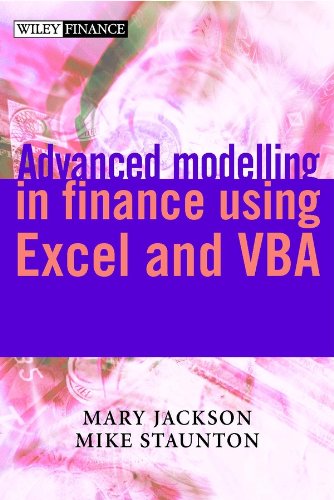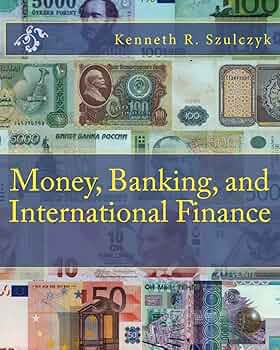Description
In the fast-paced world of finance, the ability to build and utilize sophisticated financial models is essential for making informed decisions, analyzing complex scenarios, and achieving strategic objectives. “Advanced Financial Modelling: Techniques and Applications” is a comprehensive guide designed for finance professionals, analysts, and students seeking to master advanced techniques in financial modelling. This book delves into the intricacies of financial modelling, providing readers with the tools and methodologies required to tackle complex financial problems and make data-driven decisions.
Key Topics Covered:
- Introduction to Financial Modelling: Begin with an overview of financial modelling principles, objectives, and best practices. Understand the importance of financial models in decision-making and the role they play in various financial sectors.
- Building Robust Financial Models: Learn the foundational skills for creating robust and flexible financial models. Discover best practices for model design, including structure, assumptions, and data input management. Understand how to avoid common pitfalls and ensure model accuracy.
- Advanced Excel Techniques for Financial Modelling: Explore advanced Excel functions and features that enhance financial modelling capabilities. Learn how to use array formulas, pivot tables, VBA macros, and Power Query to build dynamic and efficient models.
- Monte Carlo Simulation and Risk Analysis: Understand the application of Monte Carlo simulation in financial modelling. Learn how to perform risk analysis, model uncertainty, and assess the impact of variable changes on financial outcomes.
- Time Series Analysis and Forecasting: Delve into time series analysis techniques for forecasting financial metrics. Learn how to apply statistical methods such as moving averages, exponential smoothing, and autoregressive models to predict future trends and market behavior.
- Valuation Models and Techniques: Master advanced valuation techniques including discounted cash flow (DCF) analysis, relative valuation, and real options analysis. Learn how to build and implement valuation models for companies, projects, and investments.
- Financial Statement Modelling: Discover how to build detailed financial statement models, including income statements, balance sheets, and cash flow statements. Understand how to integrate these statements into a cohesive financial model and perform scenario analysis.
- Corporate Finance Models: Explore models used in corporate finance, such as capital budgeting, cost of capital, and leveraged buyouts. Learn how to build models that evaluate investment projects, financing options, and corporate restructuring.
- Portfolio Management and Optimization: Learn how to develop models for portfolio management and optimization. Understand concepts such as mean-variance optimization, the Capital Asset Pricing Model (CAPM), and the Efficient Frontier.
- Credit Risk and Fixed Income Modelling: Delve into models for assessing credit risk and managing fixed income portfolios. Learn how to model credit spreads, default probabilities, and interest rate changes, and apply these models to real-world scenarios.
- Real Estate and Project Finance Modelling: Explore advanced techniques for real estate and project finance modelling. Learn how to build models for property valuation, development projects, and infrastructure investments.
- Integration of Python and R in Financial Modelling: Discover how to leverage Python and R for advanced financial modelling. Learn how to use these programming languages for data analysis, statistical modeling, and automation in financial models.
- Stress Testing and Scenario Analysis: Understand the importance of stress testing and scenario analysis in financial modelling. Learn how to design and implement stress tests to evaluate the impact of extreme market conditions on financial models.
- Model Validation and Audit: Learn best practices for validating and auditing financial models to ensure their reliability and accuracy. Understand how to document assumptions, perform sensitivity analysis, and conduct peer reviews.
- Case Studies and Real-World Applications: Explore detailed case studies and real-world examples that demonstrate the application of advanced financial modelling techniques. Learn from practical scenarios and industry-specific challenges.
- Future Trends in Financial Modelling: Stay ahead of the curve by understanding emerging trends and technologies in financial modelling. Explore topics such as artificial intelligence, machine learning, and big data analytics and their impact on financial modelling.







Margaret –
“FINANCE Advanced Modelling” is an invaluable resource for anyone seeking a comprehensive understanding of financial modelling. Its detailed explanations and real-world examples provide a solid foundation in the principles and techniques involved. The authors’ clear writing style and systematic approach make the material highly accessible, enabling me to grasp complex concepts with ease. I highly recommend this book as an indispensable guide for both students and professionals looking to enhance their financial modelling skills.”
Kulu –
“FINANCE Advanced Modelling is an exceptional resource that has transformed my professional growth. Its comprehensive coverage of advanced finance concepts, coupled with clear explanations and practical examples, has significantly enhanced my analytical skills and financial acumen. The book provides a systematic framework for understanding complex financial instruments, risk management techniques, and valuation methodologies. The use of case studies and real-world scenarios brings the concepts to life, making them highly relevant and applicable. This invaluable resource has not only improved my job performance but has also ignited a genuine passion for finance within me.”
Isah –
“FINANCE Advanced Modelling” has been an invaluable resource in my financial modeling journey. Its comprehensive insights and in-depth coverage of advanced modeling techniques have empowered me to tackle complex financial scenarios with confidence. The clarity of the explanations, coupled with the practical examples and case studies, has accelerated my learning curve and enabled me to make informed decisions. This book truly deserves its reputation as a leading reference for aspiring financial modelers and practitioners.”
Ernest –
“FINANCE Advanced Modelling is a comprehensive and insightful guide that has revolutionized my understanding of financial modeling. The clear explanations and practical examples have enabled me to grasp complex concepts and apply them effectively in my financial analysis. The advanced techniques and case studies have significantly enhanced my technical proficiency and decision-making abilities. I highly recommend this book to anyone seeking to advance their skills in financial modeling.”
Zahrau –
“Having spent countless hours attempting to grasp the intricacies of advanced finance modelling, I stumbled upon ‘FINANCE Advanced Modelling’, and my fortunes took a dramatic turn. This remarkable publication presents complex concepts with exceptional clarity, employing a structured and practical approach that empowers readers to delve deep into the subject matter. The examples and case studies are real-world and thought-provoking, providing an invaluable understanding of the challenges and opportunities in the finance industry. I highly recommend this book to anyone seeking to enhance their knowledge and skills in advanced finance modelling.”